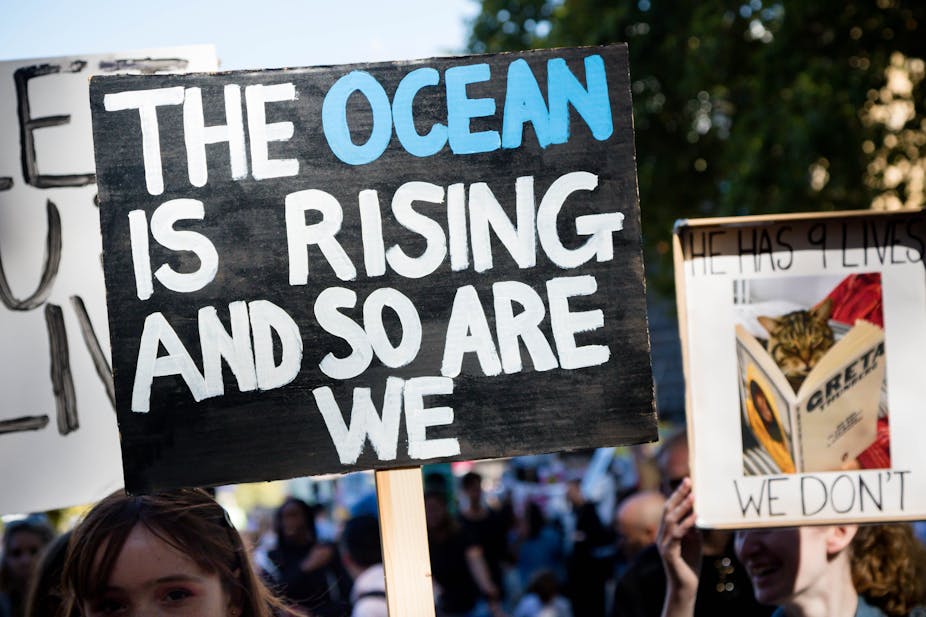In his controversial article “What if we stopped pretending?” published by The New Yorker magazine recently, acclaimed novelist Jonathan Franzen referred to the looming climate “apocalypse”, asserting that, to prepare for it, we need to admit that we can’t prevent it.
Naturally, it caused quite a stir among the climate-change vanguard. Some accused Franzen of scaremongering, saying it would drive people to anxiety or paralysis, thereby hindering action. Others felt it essential to people understanding just how bad the crisis is – and that this justified the tone of the story.

The irony is that disagreement about the merits of the article seemed to cause more angst than its subject matter. Actually, while it’s easy to pick fault with some of the facts and suggested actions (as many people have) the article is fairly balanced.
The key message for me was not one of defeat, but of hope, despite the vulnerability of the situation – or as Franzen says:
If your hope for the future depends on a wildly optimistic scenario, what will you do 10 years from now, when the scenario becomes unworkable, even in theory? Give up on the planet entirely? … It’s fine to struggle against the constraints of human nature, hoping to mitigate the worst of what’s to come, but it’s just as important to fight smaller, more local battles that you have some realistic hope of winning.
The Stockdale Paradox
Franzen’s take on the climate crisis reminds me of an anecdote referred to as the “Stockdale Paradox”, named after Admiral James Stockdale, which was popularised by Jim Collins in his business book Good to Great.

Stockdale was kept prisoner for seven years during the Vietnam War, regularly tortured and kept in solitary confinement; the paradox is based on what he observed during that time. When Collins asked Stockdale who didn’t make it out of the PoW camp, he replied: “Oh, that’s easy. It was the optimists.”
Stockdale explained that it was the optimists who always said: “We’re going to be out by Christmas.” Then Christmas would come and it would go. Then another Christmas would go by. And they simply gave up. Stockdale said: “You must never ever ever confuse … the need for absolute, unwavering faith that you can prevail despite those constraints, with … the need for the discipline to … [confront] the brutal facts, whatever they are.”
Or as Collins paraphrased it in his book on leadership and great companies: confront the brutal facts, but never lose faith.
The Stockdale Paradox is widely quoted in leadership and management courses. Marketing and management academic Martin Bressler uses it to explain what he calls “balancing the now and the next”:
Stockdale held beliefs of optimism about the future, while simultaneously acknowledging the current reality of the desperate situation in which he found himself. This contradictory tension enabled him and his followers to emerge from their situation not just unbroken, but stronger … This apparent dichotomy provides an important lesson for leaders who must remain optimistic, yet face the reality of their present condition, and is symbolic of an overarching, general tension leaders face in addressing “the now and the next”.
Facing the climate crisis
Whatever you may think of its tone, Franzen’s article does just that – setting out the hard facts about what could happen as the crisis plays out, but also providing an optimistic take on what we can do in the here and now. It’s similar to what Al Gore did in An Inconvenient Truth and Naomi Klein in This Changes Everything. Now it is the turn of Extinction Rebellion and Greta Thunberg.
Thanks to them we are all properly starting to face the “brutal facts” of our climate crisis, while also embracing the positive opportunities that will come if we actively pursue a transition to sustainable systems. They are all showing leadership.
This paradox lies at the heart of how I teach sustainable development. First, understand the enormity of what has gone wrong: look at the scale of environmental destruction caused by mining as well as the toxic level of pollutants released by industry. Bear in mind how every bit of plastic ever made is still in existence, breaking down into smaller and smaller particles which are detected in our food, our water and the air we breathe. Look at the sheer misery of human life in the squalid rubbish mountains we have created in far-flung parts of the world, which all too closely resemble Franzen’s apocalyptic scenes.
At the same time embrace the fact that we do know how to turn this around – we do have the technology, we do have renewable energies, we do understand the science – all we need is the collective will to just do it.
This balance between optimism and pragmatism is taken up in a review of Franzen’s article, in a blog post by Ajay Gambhir of the Grantham Institute, a centre for research and education on climate change:
Pragmatic optimism, rather than complacency or despondency, is the best way to tackle the climate emergency. Being mindful of potential disasters gives us a context in which to plan for them and potentially increase our actions to minimise their impacts. To do so we need to be optimistic. This needn’t be blind optimism. We should temper our hopes that we will achieve our climate goals with active planning towards the possibility that we will fall short.
A consistent message shines through: face the reality but know it can be changed. Be pragmatic – don’t pretend the climate emergency is anything less than an emergency, but remain optimistic and proactive. Take part in civil actions such as the Climate Strike. Lobby politicians. Make little changes in how you live and shop and get about. Talk about it with your children, friends, neighbours, colleagues. And be encouraged that by taking whatever actions are necessary, humanity can avert the worst-case scenario and revert to a sustainable way of living.

